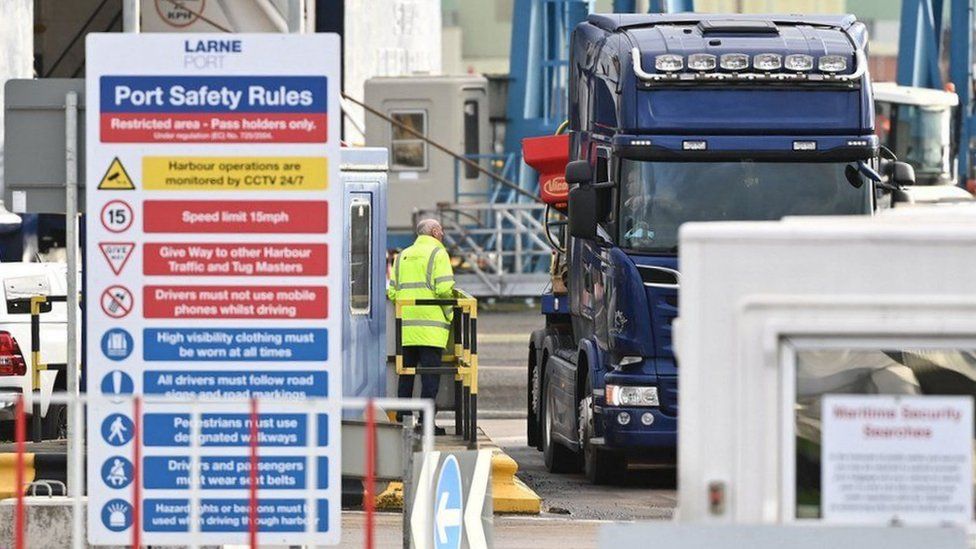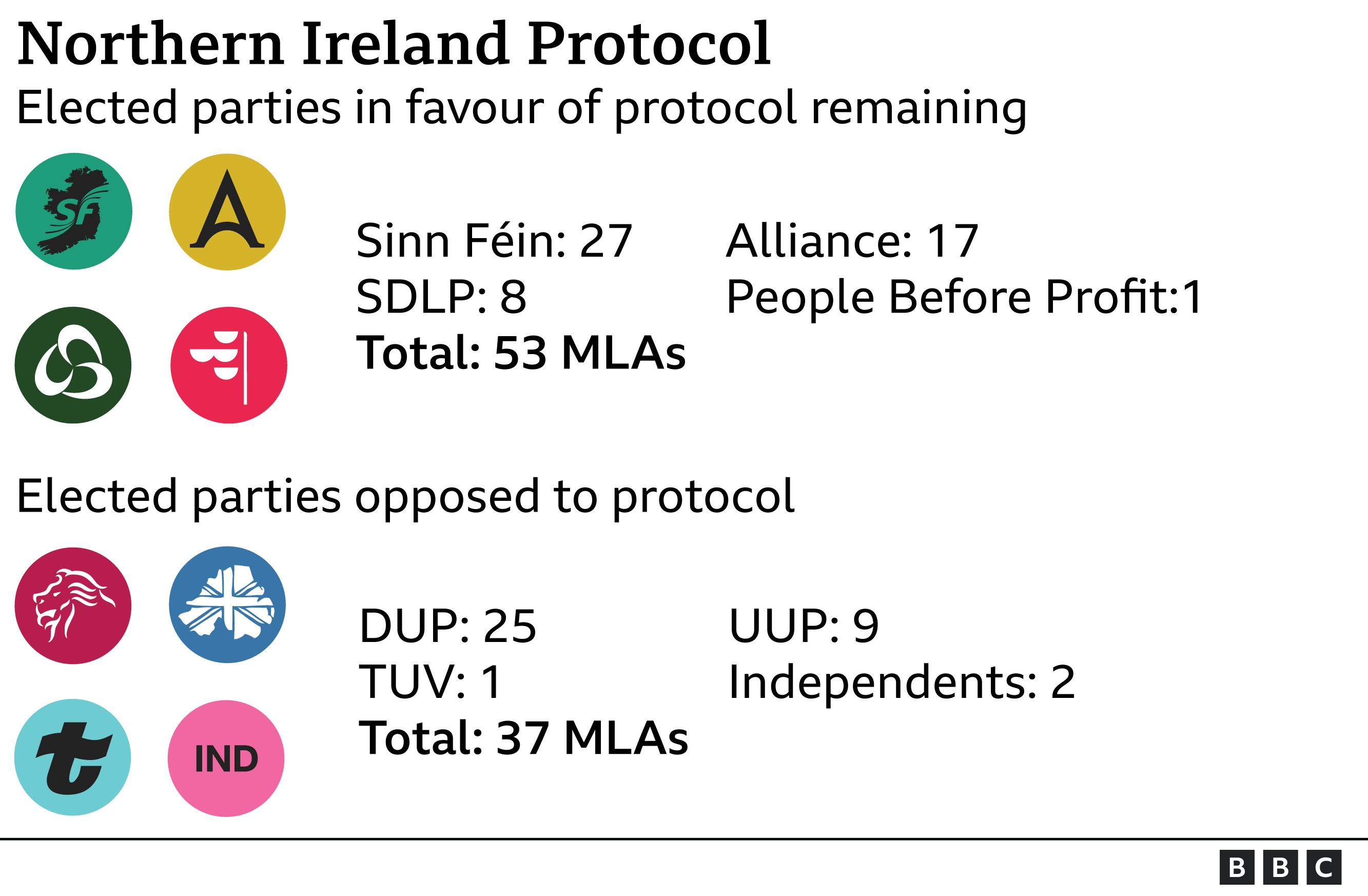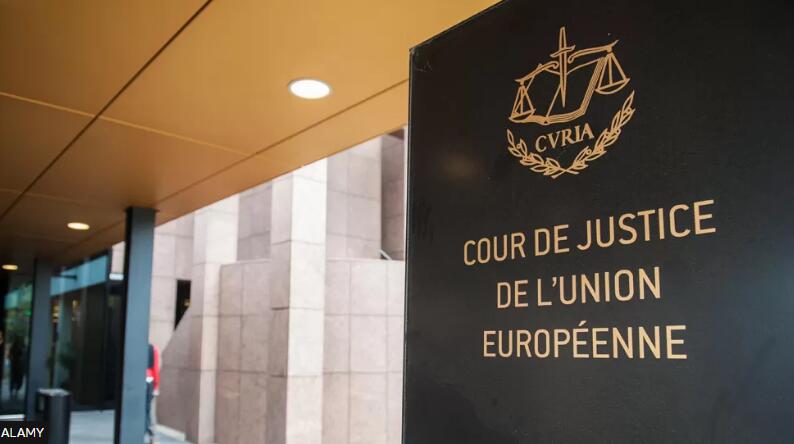NI Protocol: EU dismisses reports of compromise deal on European court
Officials in Brussels have dismissed fresh claims of a compromise deal on the European Court of Justice’s (ECJ) role in the Northern Ireland Protocol.
It follows a Times newspaper report.
It said negotiators had agreed the ECJ could rule on issues related to Northern Ireland only if a case was referred by Northern Ireland’s courts.
Two people close to the talks have either pushed back hard against the report or described it as loose-lipped “kite-flying” by someone in London.
Both the UK and EU have told the BBC “challenges” remained on reaching an overall agreement.
A precise timeline on when a deal could be concluded is not clear, but one official said negotiators were in the proverbial “tunnel”.
This is an expression used when talks are reaching a critical stage and become increasingly secretive as a deal is believed to be within reach.
Last month the BBC reported that both sides were edging towards a broad “framework” agreement – with the most progress having been made on customs.
Ongoing negotiations, which have intensified in recent weeks, have been described as “bottom up”, meaning officials are being left to scope out ideas that can then be fed up the chain.
In January, Bloomberg reported that the UK had proposed “supplementing” the ECJ with an independent arbitration panel.
Britain had originally demanded that the ECJ’s oversight role be removed – but then later suggested it could accept a more arms-length arrangement.
Regardless any compromise of that kind would also represent a significant UK concession, as well as an EU one.
The NI Protocol keeps Northern Ireland inside the EU’s single market for goods, meaning trade can flow across the land border without new paperwork or checks.

However, it also means there are new checks and controls on goods entering Northern Ireland from Great Britain.
That has caused difficulties for some businesses and is opposed by unionists in Northern Ireland.
The biggest unionist party, the Democratic Unionist Party (DUP), is preventing a government from being formed in Northern Ireland as a protest.
A majority of members of the Northern Ireland Assembly elected in May 2022 are in favour of the protocol remaining.

The UK and the EU agree that the protocol as it was originally agreed is too difficult in practice.
